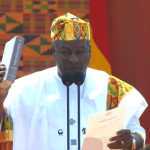Nigerians have taken to their social media platforms to express their frustration as transport fares remain high despite a recent reduction in petrol prices.
This situation which sparked debate across platforms on Monday, January 6, saw many citizens accusing transporters of failing to pass on the benefits of the fuel price cut.
On December 19, 2024, the Dangote Petrochemical Refinery announced a reduction in its ex-depot petrol price from ₦970 to ₦899.50 per litre, leading to competitive adjustments in the downstream sector.
Additionally, the Dangote Refinery partnered with MRS Petrol to sell petrol at ₦935 per litre at retail outlets nationwide, delighting many Nigerians.
In response, the Nigerian National Petroleum Corporation Limited (NNPCL) matched the new price of ₦899 per litre.
Aliko Dangote, the Chairman of the Dangote Groups further explained that the reduction was influenced by market dynamics.
However, despite the reduction in fuel prices from both Indigenous refineries, commuters have lamented that transporters have not reflected this change in their fares, with some reporting further increases instead.
Many Nigerians took to social media to express their grievances.
One user, #AsiwajuOladimeji, criticized transporters for their lack of fairness.
“When PMS was ₦1,200 a litre, transporters increased fares.
Now that PMS has dropped, fares remain high. We are greedy as humans,” he lamented.
Another user, #Arakunrin, shared his frustration, noting that fares between Oshodi and Iyana-Ipaja in Lagos rose from ₦500 to ₦700 during the fuel hike and have now increased further to ₦1,000 despite the price reduction.
While some social media users pointed to greed as the root cause, others argued that the slight reduction in petrol prices is insufficient to trigger a meaningful decrease in transport fares.
A user, #Wemmy, noted, “The increase in transport fares only rose by 100–200%, while fuel prices increased by over 500%. There’s a need for greater balance.”
The President of the National Association of Chambers of Commerce, Industry, Mines, and Agriculture (NACCIMA), Dele Oye, attributed the challenges to Nigeria’s heavy reliance on imports and the impact of the dollar.
He explained that Nigeria’s economy is primarily demand-driven, with limited local production capacity to meet even 30% of the country’s needs.
To address these issues, Oye recommended increased local production and the provision of single-digit capital loans to the private sector.
He emphasized that these measures would foster import substitution and reduce the dependency on foreign goods.
Despite the fuel price reduction, many Nigerians continue to feel the strain of high transport costs.









https://emilianosfpy97642.yomoblog.com/38670556/telegram-vpn-improving-privacy-and-safety